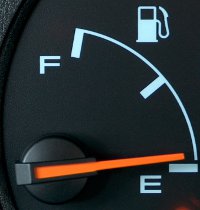 Hot on the heels of the Libor interest-rate fixing scandal comes the suggestion (in a report commissioned by the G20, no less) that oil prices may have been manipulated too.
Hot on the heels of the Libor interest-rate fixing scandal comes the suggestion (in a report commissioned by the G20, no less) that oil prices may have been manipulated too.
To be more precise, a report produced by International Organisation of Securities Commissions (IOSCO) has concluded that the oil market is open to “manipulation or distortion”.
Here’s how the oil market should work:
- Oil traders at big banks accurately report how much they are paying for oil to an organisation called Platts or one of a few alternatives.
- Platts (& co) compares the prices and creates a benchmark price.
- The benchmark price is used as the basis for trillions of dollars worth of contracts to buy and sell the petrol and diesel we buy at the pump.
Here are the problems:
- Platts and its main competitor, Argus, don’t have the authority to challenge the numbers they are given by oil traders, so the traders could submit incorrect or misleading numbers, thereby manipulating the pump price of petrol and diesel.
- Although Platts and Argus have no financial interest in the oil market, their services are funded by subscriptions, which are paid for by — you guessed it — the oil traders’ banks. This does lead to a possible conflict of interest or imbalanced view of the market.
- If the oil price is falsely inflated, we pay more than we should do for fuel.
If it sounds similar to the Libor-rigging scandal, where traders understated the interest rates their banks were paying to borrow money, that’s because it is — like so much in London’s financial world, it’s based on trust.
On the other hand, there are some points to suggest that rigging oil markets would be harder than rigging Libor:
- Platts and Argus are in competition with each other to provide the most authoritative benchmark prices. Neither would be keen to lose credibility by producing questionable benchmark prices.
- Platts says that its journalists (who compile the benchmark prices) are trained to watch out for anything fishy and are expected to check any figures that appear dodgy.
- In total, four organisations set oil prices for the market — Platts, Argus, OPIS and ICIS-LOR. I’d have thought that any consistent discrepancies between their benchmark prices would be investigated by big oil companies. With Libor, on the other hand, only one organisation compiled the interest rates, so there was nothing to compare them to, meaning it was impossible to know if they were accurate (they weren’t)…
So what’s a hard-working van driver to do?
Well, motoring campaigner Quentin Wilson is in a towering rage over at the Fair Fuel UK campaign and is trying to persuade the government to order an official inquiry. If you agree with Quentin, then head over and vote in Quentin’s poll, which he is running to find out how much public support there is for an official inquiry into the oil markets.
